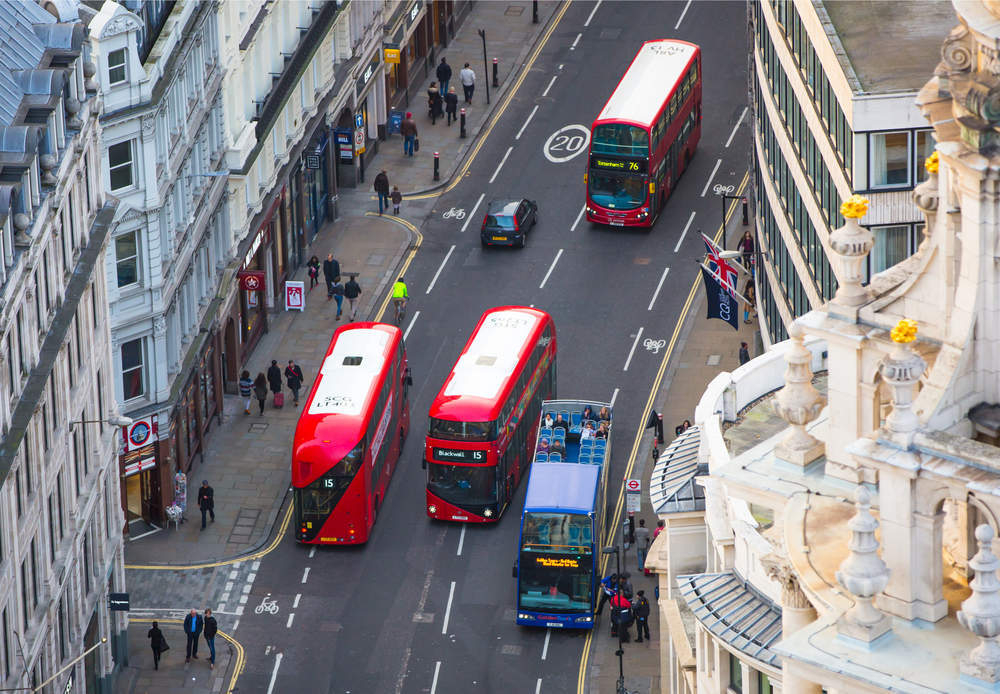
Coffee will soon fuel not only the bodies of London’s perennially exhausted inhabitants, but also its transport system.
The city’s transport authority Transport for London has announced it will reuse coffee grounds to help power some of the capital’s 9,500 buses though a partnership with so-called clean technology company Bio-bean and oil giant Royal Dutch Shell.
The initiative will see the collaboration of thousands of coffee shops across the UK (including the likes of Caffe Nero and Costa), all of which will contribute their used coffee grounds.
Bio-bean — established in 2013 by entrepreneur Arthur Kay to industrialise the process of recycling spent coffee grounds into biofuels — turns waste coffee into briquettes and pellets, blending oil extracted from the grounds with diesel, and producing a biofuel capable of powering engines — a so-called B20 biodiesel.
Bio-bean has already produced enough fuel to power one bus for a year, and is set to produce 6,000 litres of the fuel per year.
Kay said:
How well do you really know your competitors?
Access the most comprehensive Company Profiles on the market, powered by GlobalData. Save hours of research. Gain competitive edge.

Thank you!
Your download email will arrive shortly
Not ready to buy yet? Download a free sample
We are confident about the unique quality of our Company Profiles. However, we want you to make the most beneficial decision for your business, so we offer a free sample that you can download by submitting the below form
By GlobalDataIt’s a great example of what can be done when we start to re-imagine waste as an untapped resource.
According to Bio-bean estimates, it would take just over 2.55m cups of coffee to run one of London’s buses for a year.
This estimation is only a fraction of the 55m cups of coffee drunk in the UK every day, according to the British Coffee Association.
The UK alone produces 500,000 tons of coffee grounds per year, and Bio-bean is looking to expand out to other countries with similarly high consumption rates.
Both cooking oil and tallow from meat processing are already being used by London’s buses though this is thought to be the first time coffee-derived biofuel will be used.
The EU’s proposed target of getting 10 percent of transport fuel from renewable energy sources by 2020 has given the development of sustainable alternatives a new boost.
Cooking oil and inedible plants are some popular options.
The effort to decarbonise the transport sector has also seen corn and sugarcane used to make ethanol, which is burned in engines.
Crop-based biofuels are, however, problematic as they often consume more energy than they save.
In Europe, crop-based biofuels work out as 80 percent worse for the climate than regular diesel, with palm oil producing three times the carbon emissions of diesel, soy producing two times the amount, and rapeseed producing 20 percent more carbon than regular diesel.
As a result, there is a push to reduce food-based biofuels from seven percent to 3.8 percent, and the sourcing of other produce to provide power.
Other uses of biofuels
Italy’s restaurants reuse oil
Italy is increasingly using leftover oil in the production of biofuels. As of 2016, 100,000 restaurants nationwide recycle their grease to be used for fuel.
Eni SpA, Italy’s oil and gas giant, has a bio-refinery in Venice that already processes 360,000 tons of vegetable oil and other fats per year. It is also looking to invest $280m in the construction of another bio-refinery in Sicily.
PwC’s oil powered office
Accountancy giant PwC London head office uses over 45,000 litres of leftover oil every month, sourced from restaurants, pubs, bars and hotels from across the capital.
At full capacity the scheme produces 25 percent of the buildings’ electricity — equating to all of its lighting and all of the small power used for charging laptops and phones.







